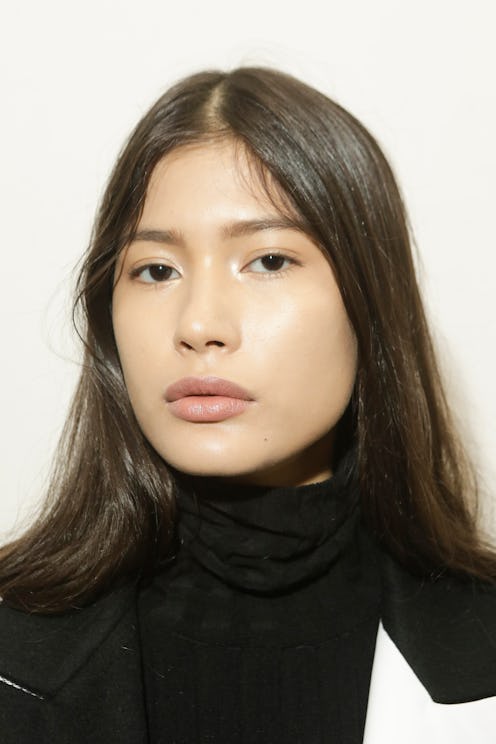(Beauty)
The Difference Between An Eye Cream & An Eye Serum Is This

When it comes to your everyday skin care routine, you probably have your go-to face serum and moisturizer locked in. But, with the under eyes easily forgotten about, you might be lacking in a regimen for this delicate but equally important area. When considering under eye products, you're probably wondering what exactly the difference is between an eye cream versus an eye serum. Aside from the consistency, there are a few qualities that set the two apart.
Before you go kicking one to the curb, note that there are plenty of dermatologist-recommended eye creams and eye serums. "Individuals should be using both an eye serum and an eye cream since they each address different eye area skin concerns," Dr. Harold Lancer, a celebrity dermatologist in Los Angeles whose clients include Kim Kardashian West, Jennifer Lopez, and Victoria Beckham, tells TZR. The Lancer Skincare founder says an eye cream is more often used to retain moisture and hydrate the skin around the eye, focusing on puffiness, dark circles, and overall skin dullness.
And according to Dr. Tess Mauricio, MD, FAAD, a board-certified dermatologist in Los Angeles, eye creams are usually thicker and heavier than regular moisturizers due to higher oil concentration. "Eye cream is mainly for moisture, so it may help with crepiness and texture," she says. "However, it may not be as effective for dark circles and anti-aging, although more advanced eye creams now incorporate ingredients to help with crow’s feet and dark circles."
Alternatively, Dr. Mauricio says an eye serum is lighter than a cream, contains less oil, and uses a vehicle that allows for better penetration of potent anti-aging ingredients as opposed to an eye cream. "Eye serums in general are better for wrinkles, dark circles, reduction of puffiness and help improve skin firmness," she says.
Dr. Hadley King, MD, FAAD, a New York City dermatologist, says with an eye serum the focus is more on the active ingredients than on the moisturizing properties. "The formulation should still be hydrating, but it won't be as rich as a cream and may not contain as many emollients and occlusive," she says. "Top ingredients may include anti-aging peptides, growth factors, antioxidants, retinols, and humectants."
Below, find the eye creams and eye serums recommended by dermatologists. (Just make sure to use them both.)
We only include products that have been independently selected by The Zoe Report's editorial team. However, we may receive a portion of sales if you purchase a product through a link in this article.